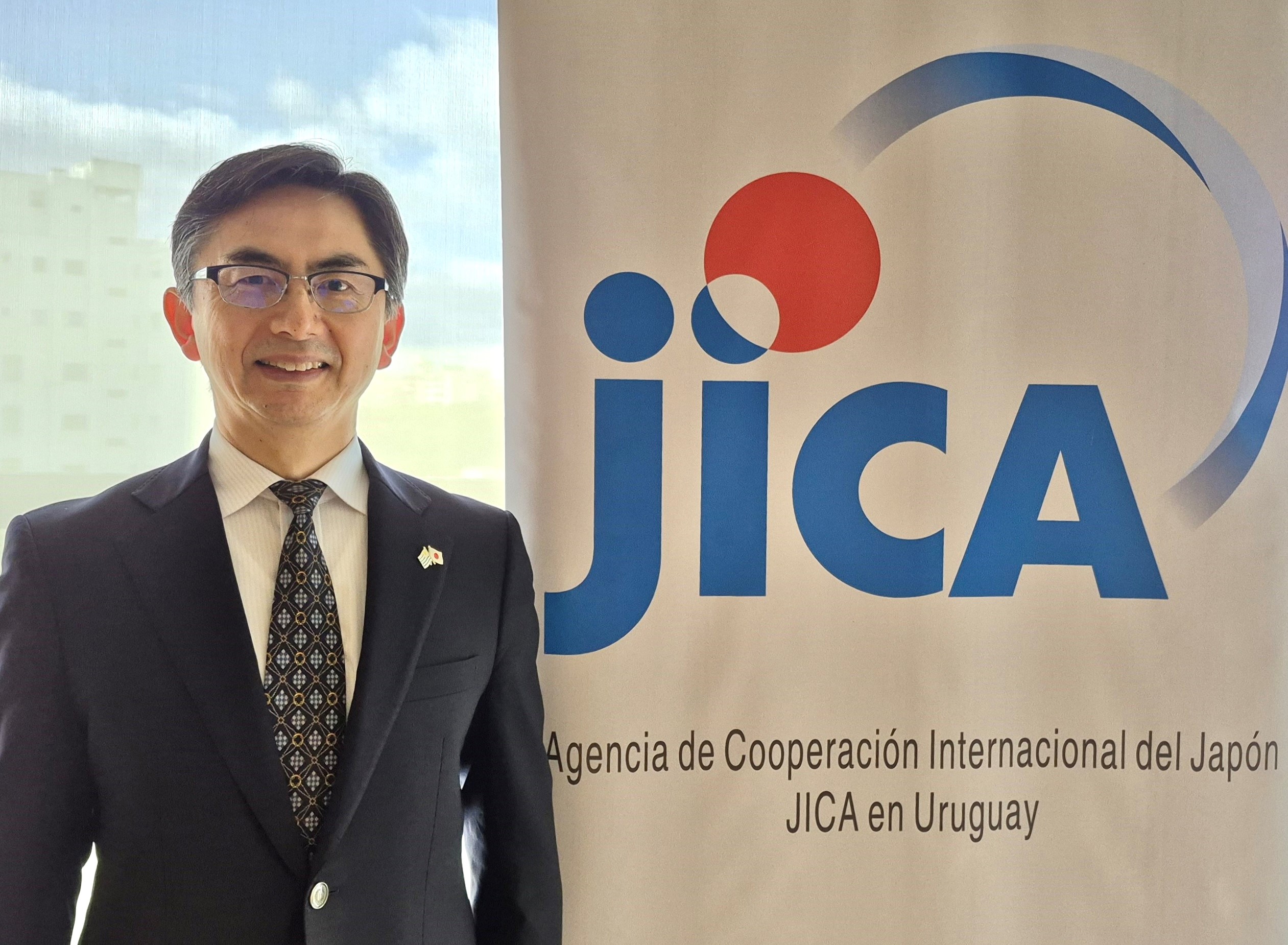Welcome to the website of JICA Uruguay. My name is Hitoshi MATSUMOTO, Resident Representative of JICA Uruguay Office.
Geographically, Uruguay is exactly on the opposite side of Japan on the globe, having the size of about half the surface area of Japan, with a population of 3.4 million people. The democracy in Uruguay is very much established, for Uruguay ranks first in Latin America and 15th out of 166 countries worldwide in the Democracy Index, surpassing that of Japan and the United Kingdom (Economist Intelligence Unit, 2025). With Human Development Index (HDI) 0.830, Uruguay ranks third in Latin America and 52nd out of 193 countries worldwide, classified in the group of countries with the highest HDI (UNDP, 2024). With these figures we can see Uruguay is quite a stable country, politically as well as socially.

In Uruguay, almost 80% of the land is fertile, suitable for the agricultural industry and for livestock farming in particular. There are far more cattle and sheep than the human population, as it is estimated that there are four times more cattle and twice as many sheep than the inhabitants, making meat one of the main export products. Just before coming to Uruguay, I was able to enjoy Uruguayan meat in a restaurant in Tokyo, thanks to its re-entry into the Japanese market in 2019. Uruguayan Japonica rice is also available for export, and it is one of the most favored by the Nikkei community in Brazil.
Regarding JICA's activities in Uruguay, we have trained more than 1,700 Uruguayans through the training program in Japan and in third countries between 1964 and 2024, and since the latter half of the 1970s we have implemented various technical cooperation projects in sectors such as agriculture, forestry, farming, etc., contributing to the socio-economic development of the country. In recent years we have been working on issues, for example, water quality management, and assistance to people with disabilities, etc.
To support Uruguay's sustainable and quality growth, JICA will continue to expand its cooperation in priority areas such as reduced inequalities, environmental preservation and private sector development. At the same time, we will continue to promote cooperation aimed at both strengthening ties with the Nikkei community in Uruguay, which has a history of nearly 120 years since the arrival of the first Japanese immigrant in 1908, and fostering interest in Japan. Thus, together with all of you, we will continue to strive to further strengthen the friendship and trust between Japan and Uruguay.
Thank you for your attention!
Hitoshi MATSUMOTO
Resident Representative
JICA Uruguay Office





scroll